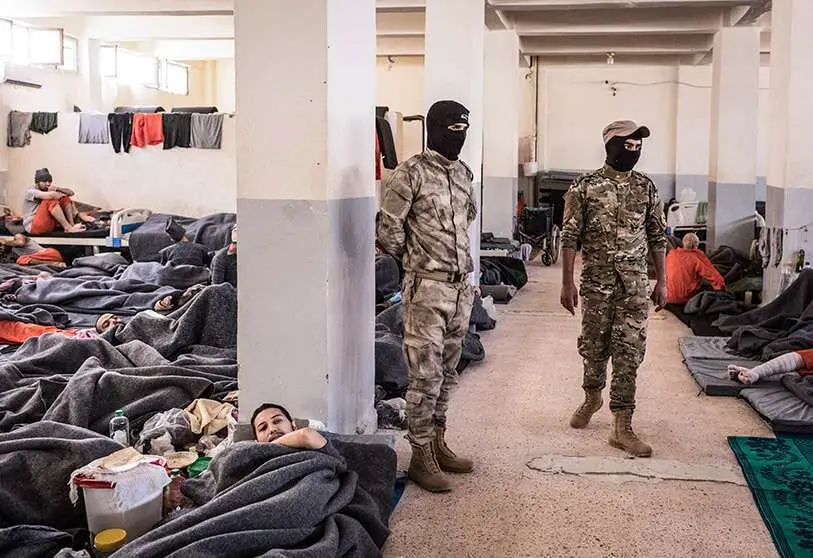Kurdish militias accuse Turkey of strengthening Daesh

Although Turkey and Syria have not officially confirmed a return to diplomatic relations, Ankara, in an attempt to establish itself as a diplomatic power in the region, has once again reached out to Damascus at a time when Erdogan's government is fighting an uphill battle against the Kurds.
The Kurdistan territories - comprising parts of Syria, Iraq, Iran and Turkey - warn that, if a rapprochement were to take place, the only beneficiary would be Daesh. The Kurdish militias of the YPG and YPJ, Erdogan's bitter enemies, managed, together with US aid, to put an end to the attempted Islamic Caliphate that the jihadist group established in Syria in the context of the civil war.

During this period, which began in 2011 with the Arab Spring uprising, relations between Turkey and Syria were strained. Damascus accused Ankara of using jihadist mercenaries, which it sent to Syria, to continue sowing chaos in the Syrian chessboard complex.
Although they managed to defeat the Daesh jihadists, especially the state structure they tried to implement through terror, this did not mean the total disappearance of the terrorists. In fact, many of them were arrested and those who did not end up in prison ended up in camps such as Al-Hol, located in the northwestern city of Hasakah, where the influence of the terrorists' wives is also a danger due to their indoctrination of their children, born to parents who have been or continue to be Daesh sympathisers. In this sense, the presence of suspected jihadists in this type of camp has led to what are known as "sleeper cells", which are awaiting their "awakening".

Given the increase in the influence and spread of jihadists in this type of camp, the Kurdish police and security forces, known as the Asayish, launched an anti-terrorist operation in the Al-Hol camp, under the name of "Operation Security and Humanity", with the aim of arresting suspected jihadists.
So far, the operation has resulted in 27 arrests and the dismantling of 33 tents that had been used as "Islamic courts" and "schools to promote the group's ideology", according to a statement issued by the Kurdish agency Rudaw.

According to the Kurds themselves, Al-Hol is "a ticking time bomb" about to explode, affecting the integrity and security of the more than 50,000 people who usually live there, relocated after the official defeat of Daesh.
Last June, a UN report denounced that 50% of its population were under the age of twelve, which led to a call to the different governments to speed up the repatriation processes in view of the risk to regional security of prolonging them any longer.

According to the report, the camp is made up of "a desolate and sprawling complex of tents under a scorching sun" in which "many people, particularly children, never asked to be part of this desperate situation with no end in sight" and their situation "only contributes to fuelling extremism".
In the context of the Syrian war, Assad's rebel opponents, grouped in the Syrian Democratic Forces, also took part in the fight against Daesh, although they had to retreat to the north of Syria, in regions such as Idlib, where they are trying to resist despite having lost the war.

It is in Idlib where, in addition to refugees, Kurdish and Arab resistance groups and jihadists are located. Since their withdrawal, Russian and Syrian bombardments have followed one after the other in an attempt to wipe out the last bastion of resistance against the dictator Al-Assad.
Idlib is not the only Syrian area still suffering from violence. The Kurdish-inhabited cantons of Afrin and Kobane have also been victims of multiple 'anti-terrorist' operations by Turkey aimed at eliminating their presence, a presence that also threatens Erdogan's Islamist policies through his influence in the Turkish parliament with the representation of the Peoples' Party (HDP).








